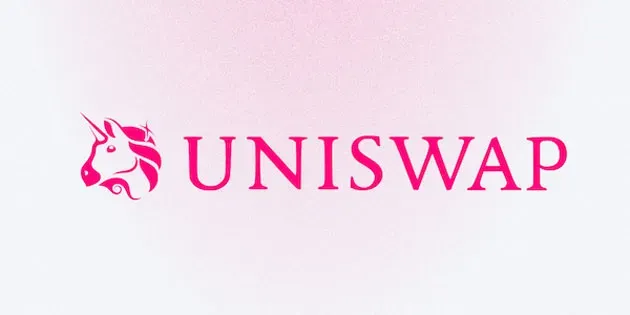Uniswap, one of the largest decentralized exchanges (DEXs), uses UNI as its governance token, enabling holders to vote on protocol decisions. However, despite its role in a pioneering platform, the UNI token raises significant Shariah compliance issues.
In this article, we examine why UNI may not align with Islamic finance principles and reference scholarly perspectives and rulings that regard UNI as haram, Insha Allah.
Understanding Uniswap and the UNI Token
Uniswap is a decentralized exchange on the Ethereum blockchain that allows users to trade assets directly, without intermediaries, using an automated market maker (AMM) model. Users provide liquidity to trading pools and earn fees in return. UNI serves as Uniswap’s governance token, giving holders voting power on decisions related to protocol development and fee structures. However, UNI has no intrinsic utility beyond this governance function, and its price primarily reflects speculation rather than real utility within the Uniswap ecosystem.
Islamic Guidelines for Halal Investments in Cryptocurrencies
Islamic finance has well-established guidelines for determining whether an investment is halal. Specifically, Shariah compliance requires that an asset:
- Avoid Riba (Interest): Investments should not generate interest-based returns.
- Limit Gharar (Excessive Uncertainty): Investments should be free from excessive risk and ambiguity.
- Steer Clear of Maysir (Gambling): Investments should avoid gambling-like practices or extreme speculation.
- Exclude Haram Elements: The asset should not be associated with prohibited industries, such as alcohol, gambling, or unethical practices.
Using these principles, we assess UNI’s compliance.
Reasons Why UNI May Be Considered Non-Compliant
1. Riba (Interest-Like Structures in Yield Farming)
Uniswap’s model incentivizes liquidity providers to stake assets in pools and earn fees, commonly referred to as “yield farming.” Yield farming creates a form of income similar to interest, as rewards are earned by simply holding capital rather than engaging in productive or trade-based activities. Some scholars view this structure as problematic, likening it to riba, which is strictly prohibited in Islam.
Prominent Islamic finance experts, such as Mufti Faraz Adam and organizations like the Islamic Finance Advisory Board, have expressed concerns over income models that resemble fixed or passive income, like yield farming. They argue that earnings should ideally result from genuine labor or productive contributions rather than purely capital-based returns, aligning UNI with impermissible practices.
2. Gharar (Excessive Speculation)
The UNI token experiences high volatility and speculative trading, largely because its primary role is as a governance token rather than an asset with functional utility. Islamic finance prohibits excessive uncertainty (gharar), and speculative assets are often deemed non-compliant. Scholars generally advise that investments should be tied to tangible value rather than speculative price increases. UNI’s value, however, is mostly derived from the market’s speculative anticipation of Uniswap’s future governance decisions, rather than inherent or productive use within the platform.
According to sites like Islamic Finance Guru and Halal Crypto, UNI’s speculative nature raises substantial gharar concerns. These platforms and scholars argue that a permissible token should have clear and functional use within its ecosystem, unlike UNI, whose value is driven by governance voting rights, creating excessive uncertainty and ambiguity.
3. Maysir (Gambling-Like Behavior)
Maysir, or gambling, is strictly forbidden in Islam. UNI’s high price volatility and speculative nature often result in behavior that resembles gambling, especially when investors buy UNI hoping for rapid price gains. Many scholars and Islamic finance experts, such as Sheikh Joe Bradford, emphasize that investments involving luck or chance-based profit are haram. The speculation around UNI, which lacks functional backing, creates an investment landscape closer to gambling than ethical trading, thus falling under maysir.
4. Association with Non-Permissible Activities
Uniswap, as an open DEX, facilitates the trading of any ERC-20 token, including those associated with haram industries such as gambling, alcohol, or ethically questionable enterprises. Since Uniswap generates fees from all traded assets, including haram tokens, UNI indirectly profits from activities not aligned with Shariah principles.
Islamic finance platforms like Shariah Experts and Amanie Advisors highlight that Uniswap’s permissionless structure makes it difficult for Muslim investors to ensure their participation is halal. Without a clear separation from haram-linked tokens, UNI’s revenue indirectly derives from haram sources, adding further compliance issues.
Scholarly Opinions on UNI and Governance Tokens
Several Islamic finance scholars and advisory groups have weighed in on the permissibility of governance tokens like UNI. The well-respected platform Islamic Finance Guru has classified UNI as haram, citing its speculative value and association with yield farming. Mufti Taqi Usmani, while not speaking on UNI specifically, has advised caution with speculative tokens lacking inherent utility, suggesting they may be non-compliant due to the excessive risk they pose to investors.
Additionally, Amanie Advisors, a well-known Shariah advisory firm, has highlighted that yield farming models often align poorly with Shariah principles due to their interest-like nature and lack of productive labor. This view has led many scholars to conclude that governance tokens, such as UNI, are often unsuitable for Muslim investors.
Conclusion: Is Buying & Selling UNI Halal?
Based on these factors and the perspectives of leading scholars and Islamic finance advisors, UNI is likely to be considered haram for investment, Insha Allah:
- Interest-Like Earnings (Riba): UNI’s reward structure for liquidity providers mirrors interest-based income, which conflicts with Shariah principles.
- Speculation (Gharar): UNI’s value primarily arises from speculative trading, creating excessive uncertainty and risk.
- Gambling-Like Trading (Maysir): The high-risk, speculative nature of UNI trading resembles gambling, which is impermissible in Islamic finance.
- Indirect Involvement with Haram Activities: Uniswap allows trading in tokens linked to non-permissible industries, indirectly benefiting UNI.
While UNI may be a pioneering governance token in DeFi, its speculative nature, association with yield farming, and alignment with high-risk trading do not meet the ethical requirements of Shariah. Muslim investors are encouraged to explore other, more compliant cryptocurrency options with intrinsic utility and clearer alignment with Islamic finance, Insha Allah.


